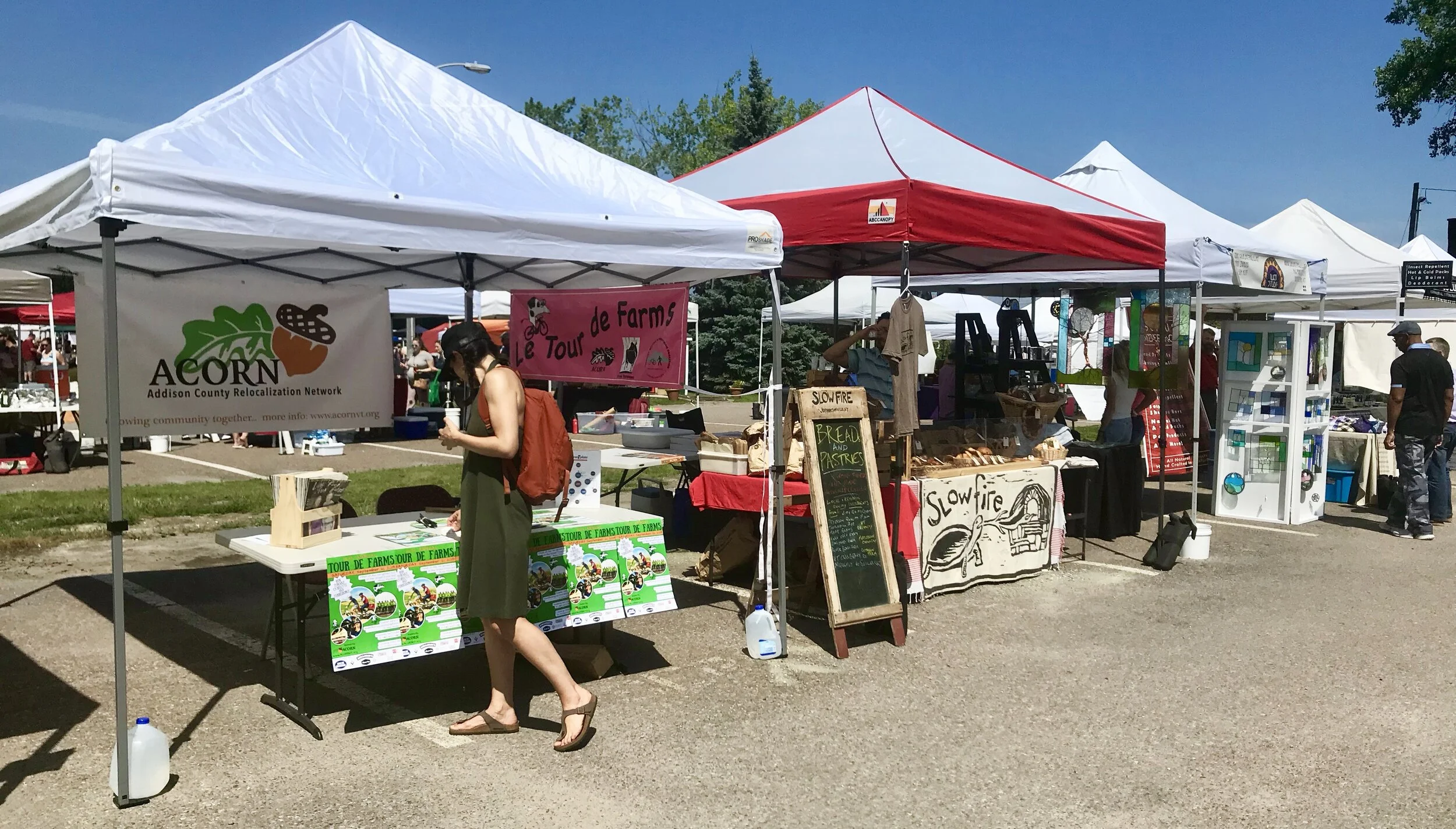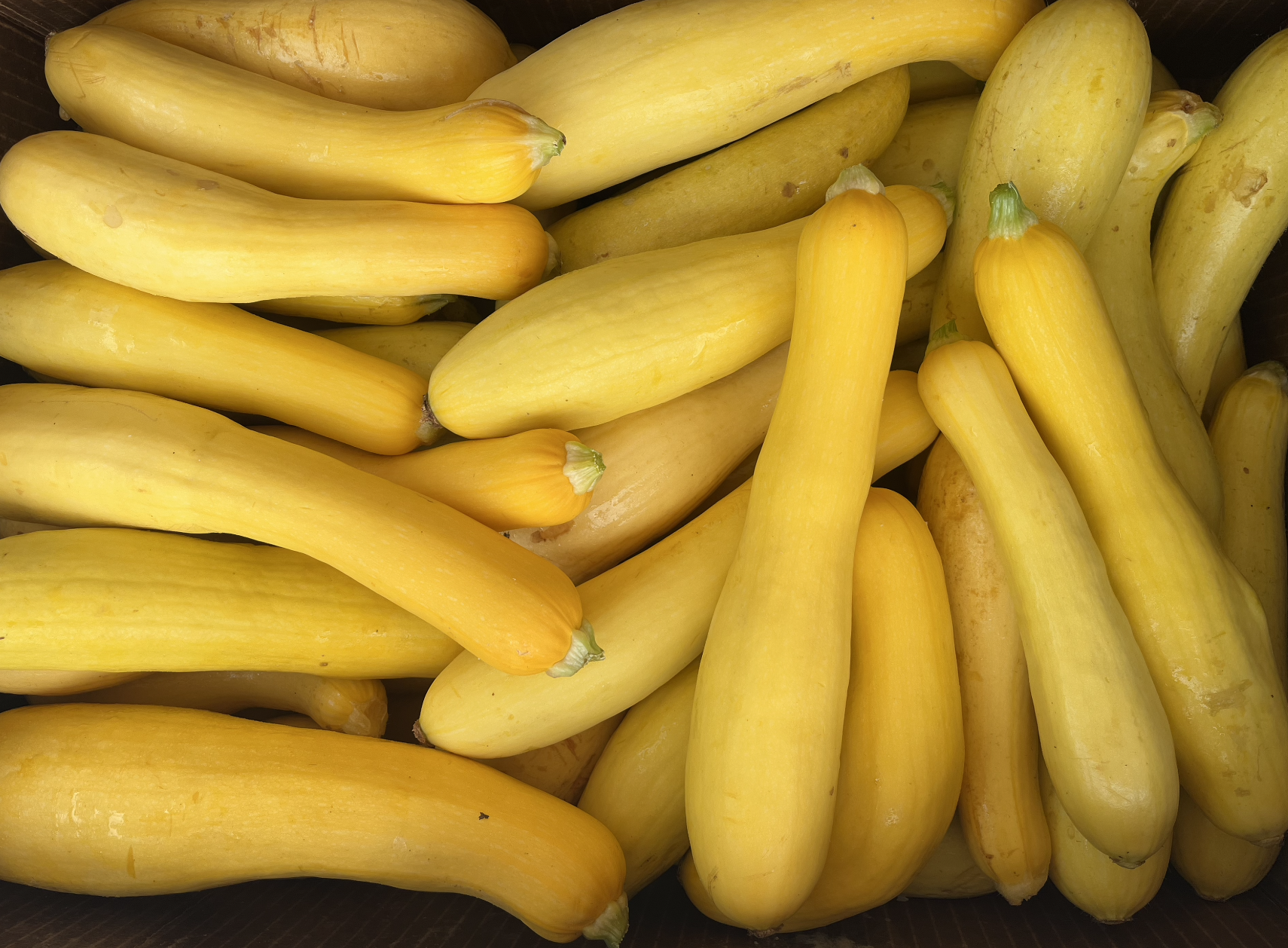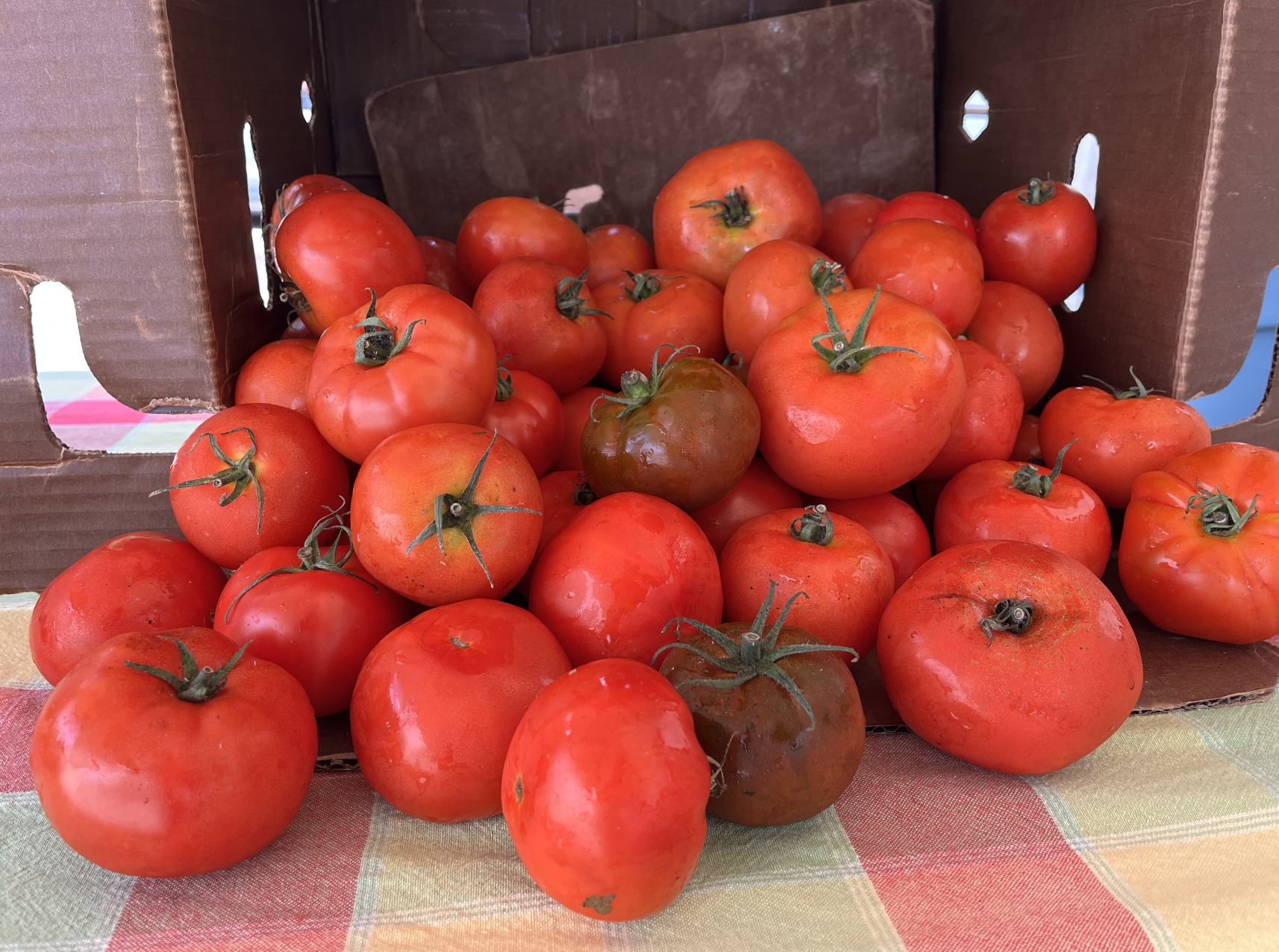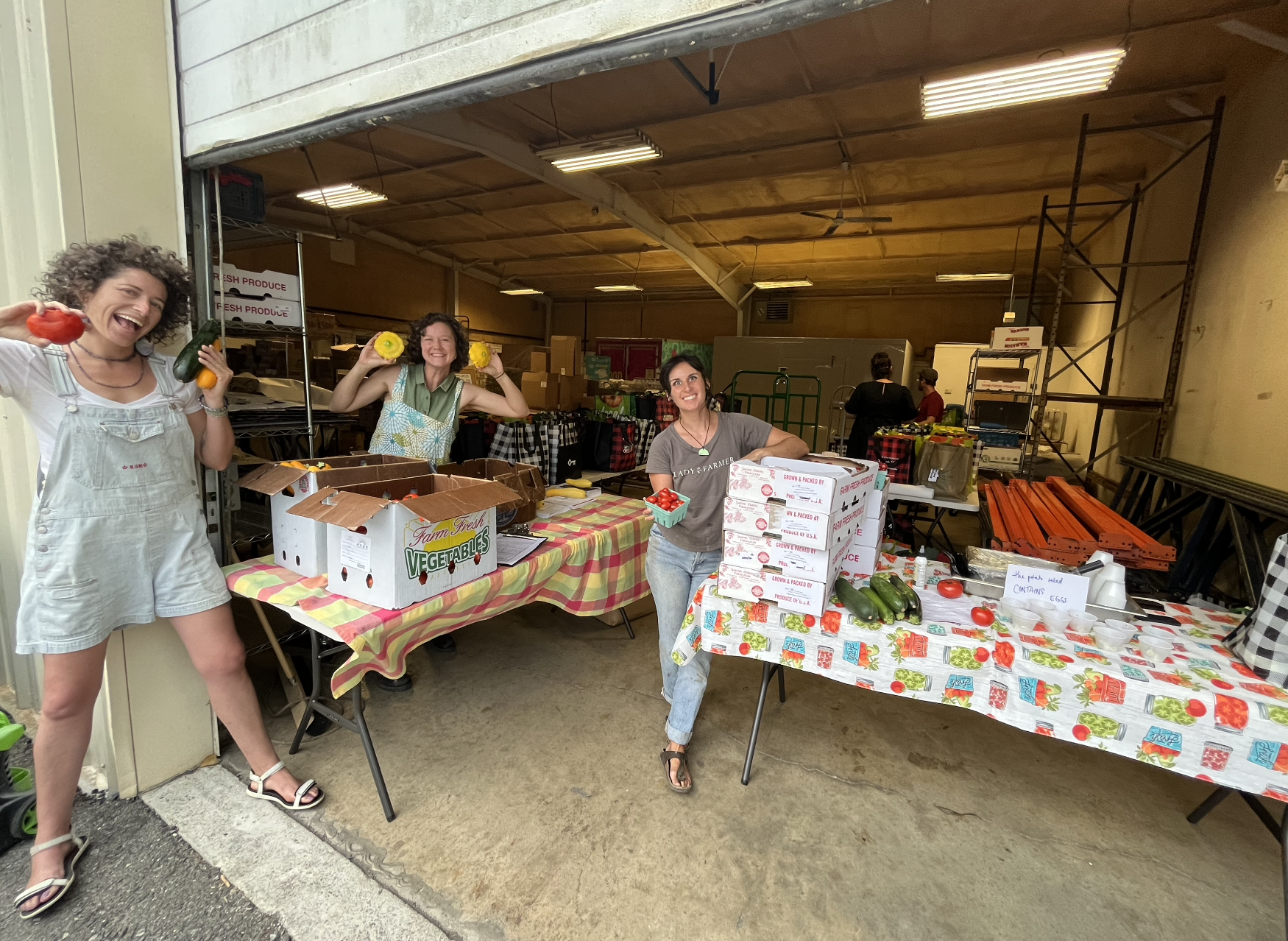Spencer Blackwell of Elmer Farm on the joys and challenges of organic farming
/By Jessica Buxbaum, ACORN Summer Intern
With a robust CSA and produce regularly sold at the Middlebury Natural Foods Co-op, Elmer Farm has become “something of a poster child for local food” in the Middlebury area, farm co-owner Spencer Blackwell says. The farm sits on 90 acres of conserved land and grows 8 acres of certified organic vegetables just out of sight from Route 116.
Its successes since its first growing season in 2008 are no accident. Spencer, who co-owns the farm with his wife Jennifer, is a lifelong farmer who has spent decades living and working on farms. He has seen and experienced the joys of providing food for his community, as well as the challenges that farmers face in the context of changing labor markets and a changing climate.
Spencer grew up on a defunct dairy farm in the Montpelier area. His neighbors were mostly dairy farmers who, at the time, were beginning to feel the effects of Ronald Reagan’s Herd Buyout Program, which offered to pay dairy farmers to slaughter their herds with the goal of raising milk prices on the market. One byproduct of the policy, however, was that smaller farmers had greater incentive to take the government’s buyout, paving the way for increased farm consolidation.
He loved growing up around agriculture, but he watched as farming declined around him and was replaced with housing and development projects.
When he went to college at the University of Vermont, he remained drawn to agricultural work. He loved seeing the tangible outcomes of a day’s work -- something most people don’t get to experience in academia or a desk job. He spent his summers working on local organic farms and started working full seasons at various farms after graduation.
Working on organic farms versus conventional farms was a given for him at that time, he said; the industry was just becoming popular and that’s where they needed more labor. Plus, it attracted likeminded people with similar philosophies about agriculture and the environment.
A few years and a few farms later, he started working at the Intervale Center, which owns 360 acres of land in the Burlington area where farmers can rent farmland and equipment to pursue farming ventures with lower risk. There, he worked as the center’s facilities manager, pursued a grain farming venture that didn’t ultimately pan out, and met Jennifer, who became his wife and the co-owner of Elmer Farm.
Shortly after, the Vermont Land Trust was just getting the Farmland Access Program off the ground. The program sells land to people interested in using it for farming. It makes it more affordable for young people to buy land and start farming, it gives the Vermont Land Trust the right of first refusal on any development projects on that land, and it made it possible for Spencer and Jennifer to buy what is now Elmer Farm!
The time between their first growing season in 2008 and 2015 was “a frenetic, crazy time of building stuff, getting bigger, learning, and figuring out systems that work with our land,” Spencer said. They had to build infrastructure, get to know the soil types beneath their feet, attract buyers, and much more.
Evidently, something they did worked. From 2008 to 2015, they doubled their produce sales every single year. They developed relationships with community members and organizations like HOPE, where they regularly donate food, and the Middlebury Co-op.
Spencer says that the most rewarding part of his time at Elmer has been raising his family here and getting to meet all the happy, grateful people that get excited about their produce.
But they are facing new and growing challenges, as well.
Farming is a precarious profession, always at the whim of mother nature -- but a changing climate makes things particularly challenging.
For instance, in their first year, they had tilled and readied a field for planting before receiving 7 inches of rain over Fourth of July weekend that basically washed the field away. Spencer called this a “good lesson in vulnerability.” During last summer’s drought, their pond for irrigation went down to nearly empty and wasn’t replenished until April.
Now that Elmer Farm is big enough for Spencer to hire a crew to help with the labor-intensive tasks on the farm, Spencer’s been able to turn his attention toward building soil health and resilience so that the farm can be better protected from extreme weather events.
The keys to this, he says, have been minimizing tilling and experimenting with leguminous crops like beans that are able to fix nitrogen into the soil. With these practices, even in just the last couple years, they’ve been able to greatly reduce their reliance on black plastic and cut their fertilizer bill in half while keeping yields the same.
One challenge that Spencer hasn’t yet found a solution to, however, is securing stable labor on the farm season to season. They’ve increased their wages and try to create a positive work environment by hiring folks with an interest in agriculture, but workers still typically perceive working at Elmer as a temporary gig on the way to something else. As a result, Spencer is often forced to retrain his crew every year.
“The price of labor keeps going up -- and it’s still not enough to live on -- and the price of food is staying the same, so something seems a bit broken there,” Spencer said.
When he’s driving around in a tractor or crawling around dirt beds, he has a lot of time to think about how Elmer Farm fits into the bigger picture, he said. He noted that progress and efficiency in our society often relies on specialization; but at Elmer, they’re trying to reverse specialize -- they’re trying to diversify, and build resilience in the process.
Diversity in agriculture, not specialization, supports healthy people and a healthy planet. Spencer mused on what this might mean for our workforce, too: “Why not have people working a three-hour shift here doing manual labor, and a three hour shift in some other job? It’s all about finding balance. We’re trying to do that here.”











